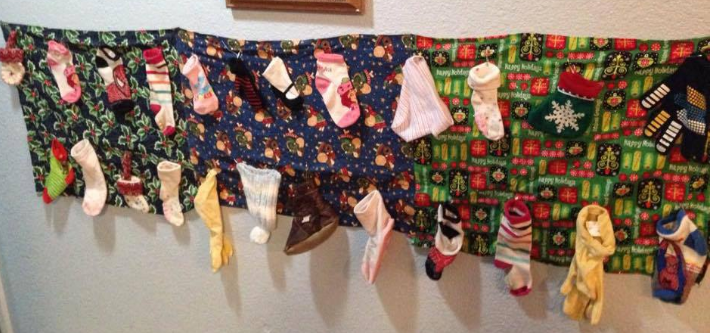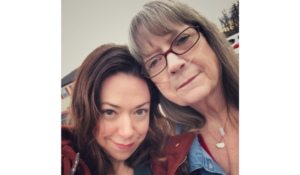A few years ago, my parents flew out from Wisconsin to visit for Christmas. Because they only make it out to California to see us twice a year, and we make it to Wisconsin to visit them even less, it was a pretty big deal.
Holidays were hard
When we adopted our daughter through foster care eight years ago, having visitors at this time of year was unthinkable. To avoid her acting out, we had to maintain a strict routine: she couldn’t perform in the Christmas play at preschool or attend her elementary school’s gingerbread house making night. We had to adhere to the same rules as other days: no dessert unless you ate your dinner (despite receiving candy in our homemade Advent Calendar) and bedtime as usual, even during winter break. And yes, even if Christmas specials would come on later on TV. We kept our sanity during the holidays by containing them: drive around and look at Christmas lights only on Christmas Eve; gifts only on Christmas Day (those who weren’t going to come brought them beforehand).
Even with these precautions in place, every year we experienced the excited agitation during pre-holiday prep and festivities, followed by the post-holiday crash when things went back to normal. My husband and I began referring to this time of year as “Holiday Hell.”
Parents of children with attachment disorders get used to walking the tightrope of making the holidays fun and meaningful, especially if they have other kids. They want it to be fun, yet they must keep excitement to a minimum so the stress of having a child act out isn’t added to the stress of the holidays. Even worse than this balancing act are the dismissive comments from others: “let them have a special treat” and “staying up late to attend the Christmas program won’t hurt anything.” Parents of children diagnosed with RAD will know all about these comments and understand our frustration.

Good news
Although it seemed there was no end in sight to my daughter’s acting out, things did get better. It was slow, just a little each year, so I didn’t notice at first. It was mostly baby steps forward and occasionally big leaps back. But the desire to celebrate Christmas with my family made me pause and examine my her growth and maturity. It was during this reflection that I realized how far she’d come. All our attempts to confine Christmas had made a difference!
My parents flew out a few days before Christmas. We drove together with festive music playing on the car radio, looking at the beautiful lights. My mother read The Night Before Christmas, snuggled up with the kids and my father on the couch. Christmas morning, my parents witnessed the kids’ mad dash into the living room to open gifts. My father laughed and said it was like the running of the bulls. We broke our holiday routines. Everyone, including my daughter, stayed up to watch How The Grinch Stole Christmas and A Charlie Brown Christmas. My parents helped us decorate the cookies and my daughter got to enjoy them before dinner.
After my parents left, I braced myself for double the post-holiday acting out. The best Christmas present I received that year was my daughter’s almost nonexistent post-holiday crash! Her acting out was more akin to that of a child without RAD than a child with it. With the success of this event, we felt comfortable relaxing our rules the following year. Each year, her more positive actions and reactions show us she can handle the excitement.
I still cringe each year when we pull out the Christmas tree and start to decorate the house, but I think that’s mostly from years of habit anticipating the worst. Knowing that gives me hope that the positive changes we’ve seen will continue in the years to come.



